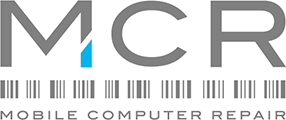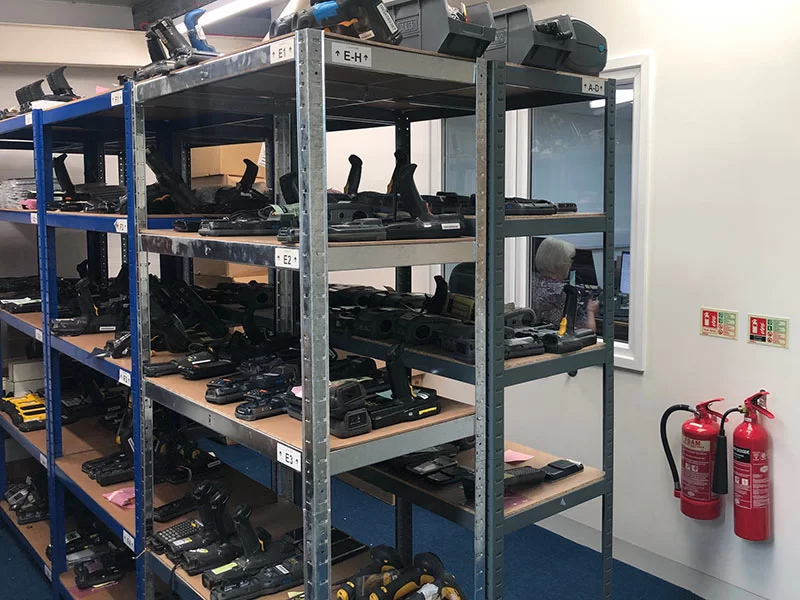Barcode scanners are used across several industries, having become a mainstay of modern businesses across the globe. But just how much do barcode scanners affect our day-to-day lives?
How do barcode scanners work?
Barcode scanners use either a laser light or an LED that shines onto the barcode of the item needing to be scanned. This light then reflects off the barcode, with the white areas reflecting more than the black lines.
The reflected light is then picked up by a photoelectric cell, the data of which is converted into a binary numeric tag. Each barcode has a unique tag, which then allows the computer attached to the scanner to recognise the identity of the item.
Now you know the technical aspects of how barcode scanners work, let us take a look at some of the ways in which barcode scanners impact your daily life.
5 benefits of barcode scanners in day-to-day life
- Flexibility
Barcodes are a universally recognised labelling system – they are pretty much everywhere! This means that scanners can be utilised in a wide range of industries, with a plethora of varying applications.
There are many different types of barcode scanners, with options for every situation. For example, static scanners are fantastic for tills, they can be inbuilt into other machines such as self-service checkouts, and you can get handheld scanners for additional flexibility.
The versatility of barcode scanners makes it a very cost-effective process to implement in your business. Even better, employees will not need much training to be able to operate them – the process is mainly just common sense.
As barcode scanners are so flexible, this means they can be essential to the day-to-day operations of a business. Due to this, it is important to undertake handheld terminal repair as soon as you notice an issue to help reduce potential downtime.
- Reduces human error
Barcode scanners are incredibly accurate, as the data is read and logged by a computer. This reduces the risk of human error that could come into play when data, asset tags, or serial numbers are inputted by hand.
One simple mistake could be catastrophic in certain industries. This is especially the case in healthcare settings. Barcode scanners can help ensure that the correct medication is administered to the correct patient at the correct time, eliminating the risk of any honest mistakes.
This is also helpful in courier and postage industries, as parcels can be scanned and sorted to be sent to the correct address, removing the risk of accidentally sending important post to the wrong area of the country.
- Quicker processes
Barcode scanners will show information about the item scanned instantly, meaning that less time is wasted, streamlining your business processes. This can allow employees to work more efficiently, and make services quicker for consumers.
One example of this is when shipping packages. Instead of human beings having to read identification numbers and addresses, and then manually input the information, the barcode scanner can accurately do all of this with one, quick scan.
This is also evident in the retail industry. The barcodes of large purchases can be scanned in minutes, and the total tallied automatically as you go along. This makes checkout lines a lot quicker (and more accurate) for both customers and employees.
- Control inventory or assets
The use of barcode scanners can allow you to control your inventory and assets as precisely and efficiently as possible. When the barcodes are scanned, the items are logged into a computer instantly.
This allows you to keep track of how many items you already have, which items are elsewhere, and how much you have overall. In doing so, this can reduce the amount of wastage and lost items in retail settings.
In educational settings and libraries, this can also increase accountability. Barcodes of equipment and books will show exactly who borrowed the item last, and how long they used it for. It can also be used to track attendance, highlighting students who might be skipping school.
- Data collection
Finally, barcode scanners can track and analyse data fast and accurately. As you can see exactly what is going out and when, you can see which items are more popular, and which items aren’t being used or bought at all.
Due to this, you can make better decisions, increasing productivity and reducing costs. It also means that you will likely throw fewer things away, which is better for both the environment and your overall profits as a company.
As you can see, barcode scanners are essential to many aspects of our daily lives – even if you don’t realise it. From warehouses to frontline retail, and from healthcare to education, barcode scanners have a huge impact on the day-to-day running of almost every industry.

